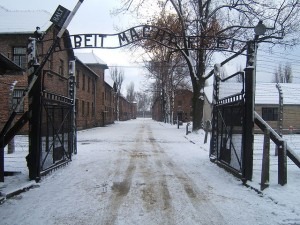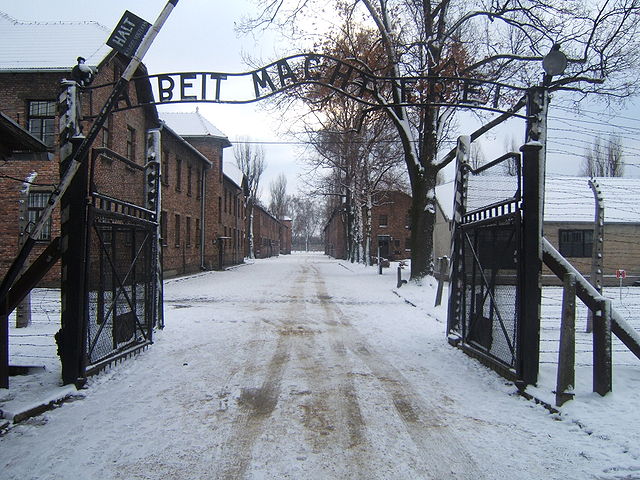
Soviet troops liberated the Auschwitz concentration camp from Nazi control 67 years ago today. Ever since that day, Auschwitz has been a byword of horror for all of humanity, a warning of the depths of depravity to which even the most “civilized” people can descend.
I visited Auschwitz in July 1995 after my sophomore year of college. I had been helping a group of more than 50 Americans run English conversation camps for high school and university students in a small town on the shore of Lake Balaton in Hungary, and I still remember our bus ride to Poland for a little R&R. We drove north through the rolling Slovakian countryside and past thick forests dotted by villages with cobblestones and thatched houses. After a short rest, we took a day trip from our hotel in Krakow to just outside tiny Oswiecim, Poland.
After the invasion and occupation of Poland in 1939, the Nazis turned a defunct barracks near Oswiecim’s important railway junction into a camp for Polish political prisoners. They renamed it Auschwitz. According to the State Museum in Oswiecim’s Auschwitzh-Birkenau Guide-Book that I’ve kept since then, “As time passed, the Nazis began to deport to the camp people from all over Europe, mainly Jews — citizens of various countries. Soviet prisoners-of-war, Gypsies, Czechs, Yugoslavs, French-men, Austrians, Germans and others were also among the prisoners of Auschwitz.”
Auschwitz was the largest of the Nazi death camps, a key tool in the Final Solution, where between 1.1 and 1.5 million people were murdered.
I remember how different it felt to be there, somehow special and terrible at the same time. Most visitors took their tours in virtual silence, but I remember distinctly the disrespectful few who found reason to joke or laugh. They were quickly hushed.
I remember the large room nearly filled from floor to ceiling with the discarded shoes of the dead, the crammed inmate barracks and the cutout window that allowed a glimpse into the unimaginably small space for prisoners in solitary confinement.
I remember the stories our tour guide told — of a priest who was said to take the place of a family man who was waiting to be executed, of the 700 recorded escape attempts, of the five men who managed to sneak outside the camp dressed as SS officers and later wrote a letter thanking Nazi leader Rudolf Hess for the car that aided their escape.
Most of all, I remember how grass and wildflowers waved in the breeze near the infamous train tracks that brought the cattle cars full of people right up to the gas chambers. I wrote in my journal that day that it seemed the flowers “whisper life…in this hell on earth.”
Today, on this anniversary of the liberation of Auschwitz, may we all remember.


